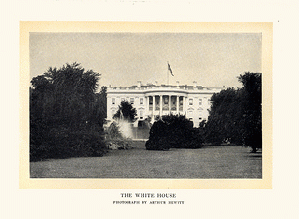WORLD'S MOST EVIL AND LAWLESS INSTITUTION? THE EXECUTIVE BRANCH OF THE U.S. GOVERNMENT BY Fred Branfman , June 26, 2013 PART 3
Executive Lawlessness: Might Makes Right
In the movie The Fog of War, McNamara stated that after World War II, General Curtis Lemay, who had firebombed Tokyo killing 100,000 civilians and dropped the atomic bomb, said:
"'if we'd lost the war, we'd all have been prosecuted as war criminals.' And I think he's right. He, and I'd say I, were behaving as war criminals. LeMay recognized that what he was doing would be thought immoral if his side had lost. But what makes it immoral if you lose and not immoral if you win?"
Good question. U.S. leaders dropped 6.7 million ton of bombs and fired an equal amount of ground artillery in Indochina, killed 1.2 million Vietnamese civilians, wounded over a million more, leveled towns and villages, created 10 million refugees, and poisoned Vietnam's forests and soil. This was precisely "the indiscriminate destruction of cities, towns, and villages," and "other inhumane acts committed against civilian populations", as so painstakingly documented in Kill Anything That Moves, for which the U.S. executed Nazi leaders at Nuremberg. Had the same judgment been rendered on Lyndon Johnson and Richard Nixon, and other top officials in their administration like Henry Kissinger and Robert McNamara, they too would have been executed - as McNamara acknowledged.
But the truth is that we live in a world, and an America, in which the rule of law does not prevail and might makes right. Our leaders endlessly inform us that America is a "nation of laws not men," even though they only escape punishment for their massive violations of basic human decency and the law, as McNamara suggested, because they are too powerful to be punished.
Even if one believes the U.S. had a right to intervene in Indochina or Iraq, no decent human being can possibly excuse its disregard for civilian life after doing so. You do not need to be a lawyer to know this was wrong. You just need a conscience.
In addition to one's own sense of right and wrong, however, there is another basis for deciding whether Americans can "trust" the Executive Branch: its willingness to observe the rule of international law. Laboriously, over more than a century, humanity has slowly evolved a body of international law that spells out what "geopolitical evil" consists of.
This body of international law is what determines whether a given nation is or is not acting lawfully. Any nation - from North Korea to Russia to the United States - can pass its own domestic laws legalizing its war-making, e.g. North Korea giving itself the right to attack South Korea, or George Bush using the "Authorization for the Use of Military Force," authorizing him only to respond appropriately to 9/11, to justify his illegal invasion of Iraq, failure to meet the legal responsibilities of an Occupying Power, and subsequent mass murder.
But domestic laws cannot be said to truly constitute the "rule of law" unless they also conform to international standards. The second of the Nuremberg Principles specifically states that
"the fact that internal law does not impose a penalty for an act which constitutes a crime under international law does not relieve the person who committed the act from responsibility under international law."
And the third and fourth principles specifically state that the fact that one is a head of state, government official, or was acting under orders "does not relieve him from responsibility under international law."
No nation on earth has refused to ratify so many laws seeking to protect civilians in times of war, and so violated even those it has signed, than the U.S. The U.S. did ratify the "Fourth Geneva Convention Relative To The Protection Of Civilian Persons In Time Of War, 1949," but has massively violated it ever since.
Those laws seeking to protect civilians in times of war that the U.S. has refused to ratify include (1) Protocol II to the Geneva Convention, passed in 1977, "relating to the Protection of Victims of Non-International Armed Conflicts"; (2) the Biological and Toxin Weapons Convention (BWC); (3) the Rome Statute Of The International Criminal Court; (4) the Convention for the Protection of All Persons from Enforced Disappearance, which prohibits the abduction and secret detention of the state; (5) the Optional Protocol To The Convention Against Torture; (6) the Mine Ban Treaty; (7) the Cluster Bomb Treaty. And though the U.S. ratified (8) the Chemical Weapons Convention, it has gutted it by demanding exceptions for itself.
The responsibility for the U.S. failure to ratify treaties protecting innocent people is shared between the Executive Branch and U.S. Senate conservatives. But there is little doubt that if a president and giant Executive Branch agencies, especially the Pentagon, lobbied for them they would probably be ratified. In almost every case, however, it is Pentagon lobbying and presidential indifference which has prevented ratification. Former Vietnam Veterans Foundation chief Bobby Muller personally lobbied then-President Bill Clinton to sign the land mine treaty, for example. Clinton responded that it was up to Muller to "get the military on board" but showed no interest himself in trying to do so.
(Note: You can view every article as one long page if you sign up as an Advocate Member, or higher).





